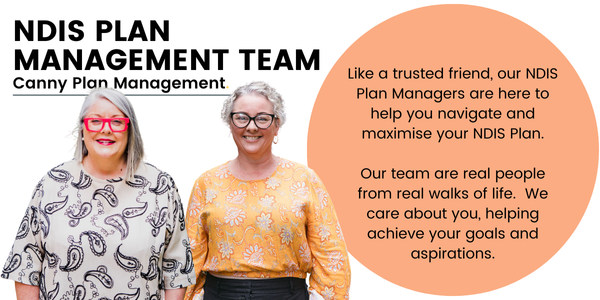NDIS Price Guide Breakdown – What’s Changed?
Written by: NDIS Plan Management Team
The National Disability Insurance Scheme (NDIS) Pricing Arrangement and Price Limits Guide is the place where we all refer for information about what supports can be claimed, who can deliver them, the rates that can be claimed for supports delivered and other general claiming rules. It is regularly updated to ensure the most accurate information is available.
This Guide is regularly updated and reissued to ensure that the information within, is most up-to-date and relevant.
Let’s break down the recent changes within the Price Guide and what they mean.
Changes to Provider Travel
The budgets set out in an NDIS Participants NDIS Plan are made up of many components, one of which is travel.
This being said, travel presents in many ways within the NDIS Pricing Arrangements and Price Limits Guide, including:
- Activity-based transports;
- Provider travel labour costs; and
- Provider travel non-labour costs.
Provider travel non-labour costs allow for NDIS Providers to claim kilometres travelled to the NDIS Participant, along with other relevant travel costs such as road tolls and parking costs; the national limit for claims for km’s claimed is $1 per kilometre travelled, keep in mind that this does not mean that this is what should be claimed, the National Disability Insurance Agency (NDIA) has changed their suggested rate from $0.97 per Km to $0.99 per km.
While this is the price that the NDIS suggests is appropriate, this rate (and all rates for supports delivered) is negotiable and should be discussed between the service provider and NDIS Participant or representative.
While claims for provider travel are intended to support the NDIS Provider, these claims must be agreed upon and, where necessary, negotiated with the NDIS Participant.
Changes to Cancellations
Within the NDIS Pricing Arrangements and Price Limits Guide, you will find the rules surrounding cancellations of supports; the NDIA defines a short notice cancellation as a support cancelled within seven days of the arranged support.
In the recent price guide changes, the NDIS has changed the definition of this from seven business days to seven days prior to the intended date of support.
This means that if the support has not been cancelled with more than seven days’ notice, the NDIS Provider may claim up to 100% of the intended support. But, what about if the NDIS Participant has not agreed to claims for cancellations?
The NDIA suggests that the terms of short notice cancellations in their service agreement, this ensures that the claims are agreed upon and the agreement is kept in written form to avoid any future disputes.
As with all NDIS supports, the terms of cancellations may be negotiated, for example, an NDIS Participant and provider may come to the agreement that cancellations may only be claimed if given less than five days’ notice or the provider may only claim 50% of the scheduled support if given less than seven days’ notice. This should be set out in the signed service agreement.
Not sure if you need, or what exactly should be included in your Service Agreement? Check out this previous blog we put together: NDIS Participants + Service Agreements
Special NDIS Pricing Arrangements
Within the updated National Disability Insurance Scheme (NDIS) Pricing Arrangements and Price Limits Guide, you will find a range of updated guidelines of what is required in order to claim certain supports, in particular, the Implementation of Intensive and Complex Behaviour Supports.
The most recent updates to the National Disability Insurance Scheme (NDIS) Pricing Arrangements and Price Limits Guide have updated the guidelines to break down the requirements for such supports and exactly who can deliver this.
The requirements for this support include:
- Displays frequent behaviours of concern that have a significant effect on their or others’ well-being and safety;
- Requires intensive support and the implementation of intensive proactive strategies (frequent/daily), skill development, and response strategies, which may include the use of restrictive practices to minimise the risk of harm to themselves or others; and
- May, or is likely to, be experiencing other issues that exacerbate or increase the complexity of their behaviour support needs.
These supports must be delivered by someone who meets the following criteria:
- Implementing behaviour support as described above with the participant and in accordance with their interim or comprehensive behaviour support plan;
- Be registered and assessed for module 2A (implementing behaviour support plans); or
- Have submitted a registration amendment application or new registration application to the NDIS Quality and Safeguards Commission, including a completed Audit assessment against Module 2A by 30 June 2025.
So, what does all of this mean?
This means that the NDIS has put these new guidelines in place to ensure the Intensive and Complex Behaviour Supports delivered to the NDIS Participant are safe and delivered by providers who have proven knowledge, skills and training to deliver the required supports to the people who need it most.
It helps you, the NDIS Participant, know that the providers you are choosing to work with are capable of delivering the supports you need, and it helps the NDIA monitor providers for compliance and ensure they are skilled and knowledgeable in the supports they intend to deliver.
Canny Plan Management + How We Help NDIS Participants
Our team at Canny Plan Management prides itself on being experts in the NDIS price guide and up to date with all of the changes within the National Disability Insurance Scheme Pricing Arrangements and Price Limits Guide, we could almost say we are experts!
We are here, ready to answer your questions and help guide you through even the most difficult ones to help you understand how the price guide affects you, and the use of your plan and ensure your claims remain compliant.
Get in touch to find out how we can become part of your support network.
